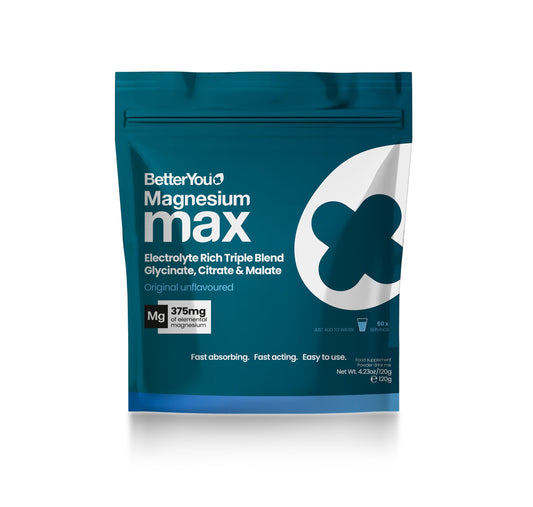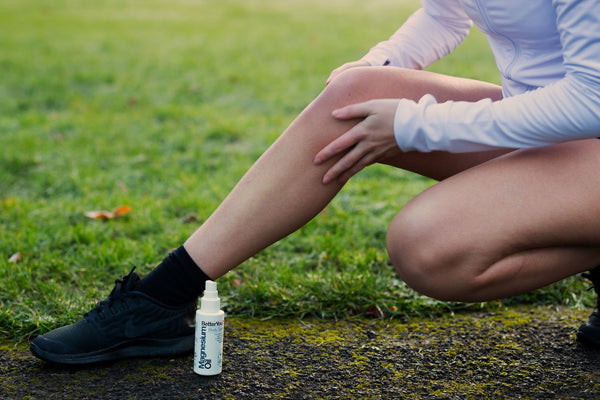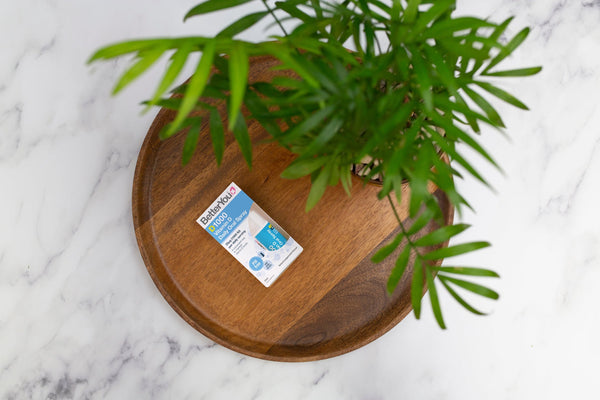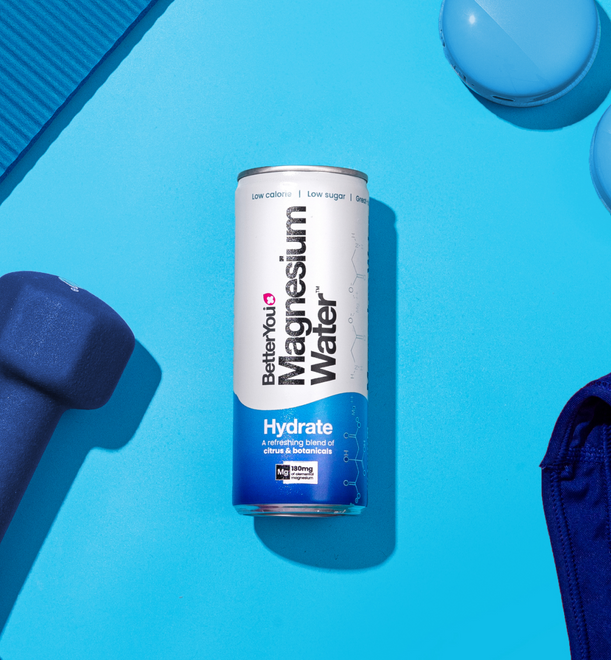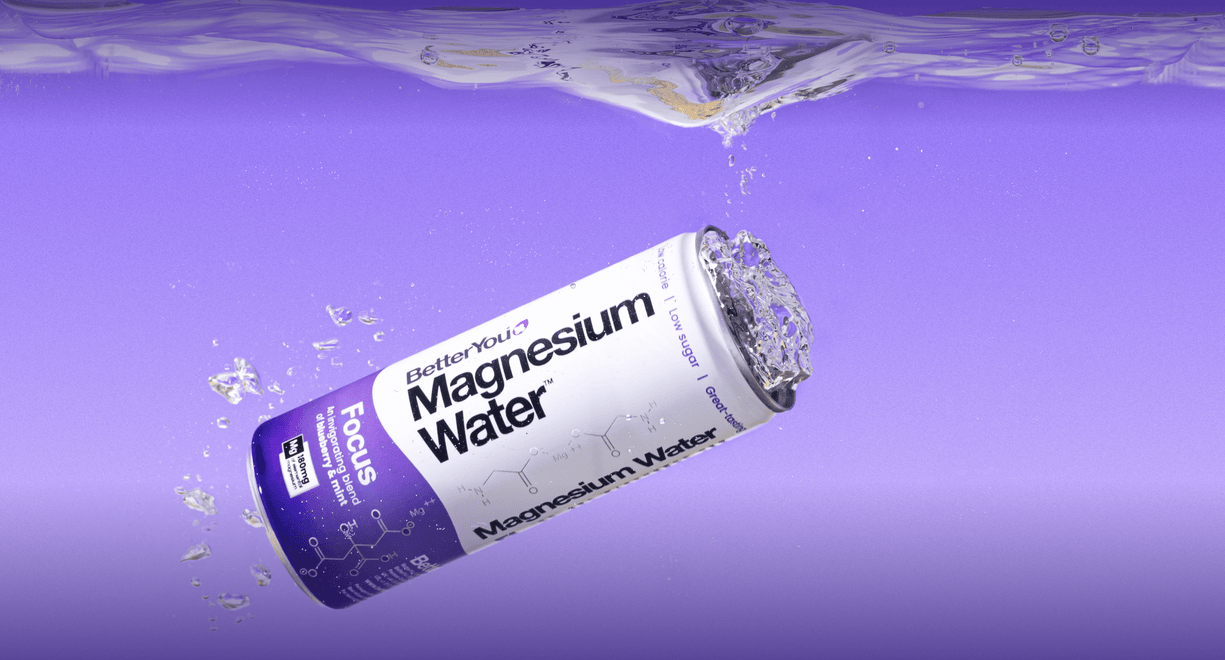Vitamins and minerals are essential in winter to support your health, especially in the UK. The colder, darker days can leave us feeling low, both mentally and in energy. We’re taking a look at the top seasonal health complaints, from low mood to aching muscles, and show you which winter nutrients could help you soothe your concerns.
Click on a link below to jump to the relevant section:
- Can Vitamin D Help you Beat the Winter Blues?
- How Can I Protect Myself from Colds in the Winter?
- What Can I Do to Increase my Energy Levels in Winter?
- How to Ease Muscle Tension in Winter?
Can Vitamin D Help you Beat the Winter Blues?
Vitamin D is an essential supplement for winter, and throughout the year. This vital vitamin supports your bones, immune system, and can help to lift your mood during the dark winter months.
What are the Winter Blues?
Seasonal Affective Disorder (SAD) is also known as the ‘winter blues’. It is thought to affect around 2 million people in the UK and Ireland. The precise cause of SAD is not fully understood, but the general consensus is that it is caused by a lack of sunlight, which leads to lower serotonin levels – the hormone that affects mood, appetite and sleep.
Whilst taking supplements during winter cannot cure SAD, they may be able to support your symptoms through this time of year. One of the main causes for feeling low during winter can be put down to our lack of vitamin D. In fact, symptoms of vitamin D deficiency can include experiencing a low mood. This is due to the fact that low vitamin D intake can impact production of serotonin (the “feel-good hormone”).
In the UK and Ireland we are more susceptible as we are situated in the northern hemisphere, where we experience large changes in ultra violet light levels between the summer and winter. In the winter we experience dark, gloomy weather, which can have a profound effect on our body clocks, resulting in an impulse for hibernation. Extended periods of darkness can cause us to eat more and be less energetic, making us feel lethargic and sluggish and making physical activity feel like an effort.
Treatment for SAD
Many people think that feeling down and tired is a normal part of winter, but there are natural ways to help ease the effects of SAD. This can include exposing yourself to light, or increasing your intake of essential winter vitamins.
- Exposure to equatorial sunlight - getting some winter sun
- Daily vitamin D supplementation
- Bright light therapy
How Much Vitamin D Do You Need in Winter?
To keep on top of your levels of vitamin D in winter, we recommend a daily vitamin D dosage of: approximately 1000 IU per 25 kg of body weight. The safe upper limit is 100μg (4,000 IU daily).
If you are unsure of how much of this winter vitamin you are intaking, then BetterYou offers an at-home vitamin D test to identify your levels and risk of deficiency.
Increasing your Vitamin D Levels in Winter
Including Vitamin D as part of your winter supplementation is an easy and inexpensive way to help reduce the symptoms of SAD and experience the benefits of vitamin D.
90% of our essential vitamin D sources come from our skin's unprotected exposure to the sun. However, during the winter months (from October to March in the UK) the sun’s ultraviolet rays are not strong enough for the body to synthesise sufficient level of vitamin D.
BetterYou’s vitamin D supplements are hassle-free, because they are pill-free supplements. This means you don’t have to take a tablet, and can simply spray your winter vitamins into your mouth, and continue about your day.
Public Health England now advises everyone to take a daily vitamin D supplement during this period to protect bone and muscle health. This simple winter supplementation could also protect you against the effects of SAD.
How Can I Protect Myself from Colds in the Winter?
You may need to think about supplements to support your immune system to help bolster your health with vitamins over winter. By adding vitamin D to your daily routine, you can look after your body’s first line of natural defence. Vitamin D supports the immune system through the production and regulation of T cells, B cells, and dendritic cells.
A healthy diet with robust winter vitamin and mineral intake is a crucial ingredient for a healthy body. However, there are certain things that we just can’t get from our diet no matter how many portions of fruit and vegetables we consume: The “sunshine vitamin” is a vital immune booster and we do not get enough of the vitamin in winter months. Because only 10% of the vitamin D we need comes from our diet, you may require vitamin D in winter to support your immunity.
What Can I Do to Increase my Energy Levels in Winter?
There are a number of vitamins and minerals in winter and throughout the year which contribute to our ability to better resist fatigue. We increasingly see a need in winter for vitamin B12, due to vitamin B12 deficiency. The benefits of vitamin B, and B12 specifically, include supporting healthy red blood cell formation and contributing to the reduction of tiredness and fatigue.
Increasing your intake of this winter vitamin can help to support your body’s ability to increase your energy levels naturally. However, B12 is known for being notoriously hard to absorb through the gut. In fact, B12 is so difficult to absorb that only approximately one percent of intake from food is actually retained.
Our vitamin B12 supplements efficiently deliver this vital winter vitamin straight into the bloodstream to quickly increase your levels, helping to combat your fatigue.
How Much Vitamin B12 in Winter?
According to the NHS, adults (aged 19 to 64) need about 1.5 micrograms a day of vitamin B12.
If you’re unsure of your levels of winter vitamins, BetterYou offer a vitamin B12 test kit to help you identify your levels. That way, you can stay on top of your winter supplement intake and ensure you’re supporting your body in the best way.
How to Ease Muscle Tension in Winter?
Our bodies automatically tense when we hit the cold weather; we lift our shoulders and try to almost cuddle into ourselves in an attempt to keep warm. Once tense it can be hard to get back into a state of relaxation. We also carry a lot of tension when stressed and the run up to Christmas and the Holiday season can be an extremely busy time.
You can soothe your body back into a relaxed state through winter supplements. The best winter supplement for relaxing your muscles is transdermal magnesium. BetterYou’s magnesium supplements mean you can absorb the winter mineral through your skin, without having to take a tablet.
As a supplement for winter and throughout the year, magnesium helps to relieve muscle tension, thanks to its role as nature’s finest relaxant.
- Add Magnesium Bath Flakes to your bath tub to warm up on a cold night and help you relieve excess tension whilst taking your winter supplements.
- Rub Magnesium Creams on your skin before you go to sleep to help you wind down in the evening and relax your muscles.
- Use Magnesium Sprays for a quick and effective way of taking your supplements in winter without having to swallow a tablet.
How Much Magnesium in Winter?
According to the NHS, the recommended daily amount of magnesium for adults (19 to 64 years) is:
- 300mg a day for men
- 270mg a day for women
BetterYou’s magnesium supplements are applied transdermally, which means there is no safe upper limit. Upper limits are only set when using the product orally, as large doses can have a laxative effect due to it being a natural relaxant.
About BetterYou
BetterYou is an innovative natural health company specialising in oral spray supplements and magnesium absorption. Since founding in 2006, we have worked with a number of leading institutes to help understand the science of absorption. They include the Universities of Sheffield and Cardiff University, as well as St Mark’s Hospital London.
